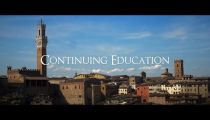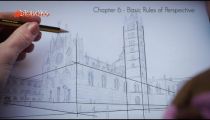Primavera!
Yes, it’s here. Time once again to walk through the woods with my wife Valeria and hunt for wild asparagus.
Before moving to Tuscany—or before getting to know Valeria, for that matter—I never dreamed of engaging in such a beautiful springtime activity. Maybe I had never really appreciated Spring. Primavera in Italy demands to be savored. It excites the senses, puts you through a yearly rebirthing process replete with nameless pangs and yearnings.
I can’t resist sharing the sounds of Primavera as experienced by artistic Italian observers.
First, Francesco Landini, the blind organist from Florence, who became one of Italy’s most influential composers during the second half of the 1300s. Old music, but the libidinous energy of “Ecco la primavera” has lost none of its bite.
The text of this 14th-century ballad:
Ecco la Primavera che ‘l cor fa rallegrare.
Temp'è d'innamorare e star con lieta cera.
Noi veggiam l'aria e 'l tempo che pur chiam’ allegrezza.
In questo vago tempo ogni cosa ha vaghezza.
L'erbe con gran freschezza e fior copron i prati
e gli alberi adornati sono in simil manera.
Ecco la Primavera che 'l cor fa rallegrare.
A very rough translation:
Here is the Spring, which cheers the heart.
Time to fall in love and put on a merry face.
We see how even the air and the weather call us to joyfulness.
In this lovely time each thing shows its beauty.
The greenery is fresh, and flowers cover the meadow
And the trees likewise are adorned with blossoms.
Spring is here, which cheers the heart.
Okay, one more favorite. It starts with a poem by Francesco Petrarca, known in English as Petrarch. Talk about a romantic spirit! On April 6, 1327, this twenty-two-year-old Tuscan went to a Mass in Avignon, France. There, in the Church of Sainte-Claire, he saw and fell forever in love with Laura de Noves, who, though only seventeen, had already been married for two years. I don’t think Petrarca ever shared so much as a warm handshake with his Laura. Still, she remained his muse and unobtainable object of desire for the rest of his life, inspiring most of the 366 poems making up hisCanzoniere, or “Song Book.”
A gorgeous work from that collection is “Zefiro torna, e ‘l bel tempo rimena.” The first part praises the wonders of Spring, heralded by the return of Zephyr, the gentle yet soul-stirring West Wind. The world rejoices, but Petrarca suffers the ache of a love destined to remain eternally unrequited. News of his muse’s death having reached him, the poet finds himself alone in a world devoid now of loveliness.
The original text in Italian:
Zefiro torna, e 'l bel tempo rimena,
e i fiori et l'erbe, sua dolce famiglia,
et garrir Progne et pianger Philomena,
et primavera candida et vermiglia.
Ridono i prati, e 'l ciel si rasserena;
Giove s'allegra di mirar sua figlia;
l'aria et l'acqua et la terra è d'amor piena;
ogni animal d'amar si riconsiglia.
Ma per me, lasso, tornano i piú gravi
sospiri, che del cor profondo tragge
quella ch'al ciel se ne portò le chiavi;
et cantar augelletti, et fiorir piagge,
e 'n belle donne honeste atti soavi
sono un deserto, et fere aspre et selvagge.
A translation in English (not my own):
Zephyr returns and brings fair weather,
and the flowers and herbs, his sweet family,
and Procne singing and Philomela weeping,
and the white springtime, and the vermilion.
The meadows smile, and the skies grow clear:
Jupiter is joyful, gazing at his daughter:
the air and earth and water are filled with love:
every animal is reconciled to loving.
But to me, alas, there return the heaviest
sighs that she draws from the deepest heart,
who took the keys of it away to heaven:
and the song of little birds, and the flowering fields,
and the sweet, virtuous actions of women
are a wasteland to me, of bitter and savage creatures.
As so often happens in Italy, a masterpiece in one form of art spawns the creation of new treasures in other mediums. No wonder, then, that two and a half centuries after Petrarca wrote the poem, the great composer Claudio Monteverdi (1567-1643) set it to music in this amazing madrigal:
Spring is here. Come, Valeria. Lead me into the woods.
Jeff Shapiro,
Creative Writing teacher










